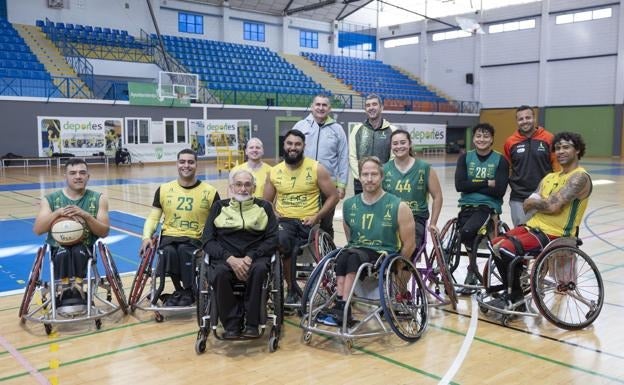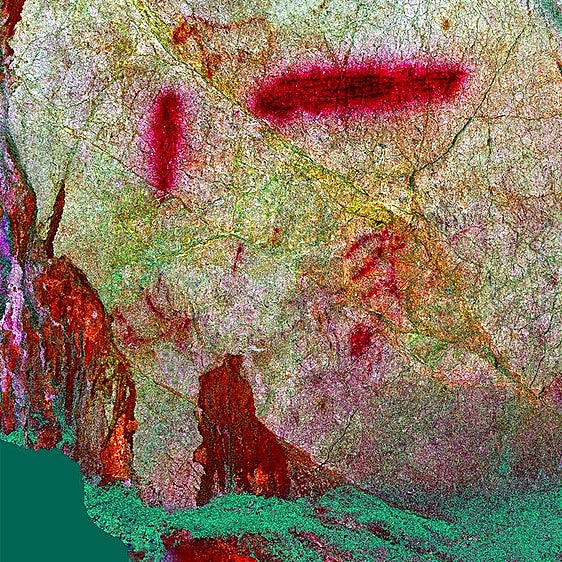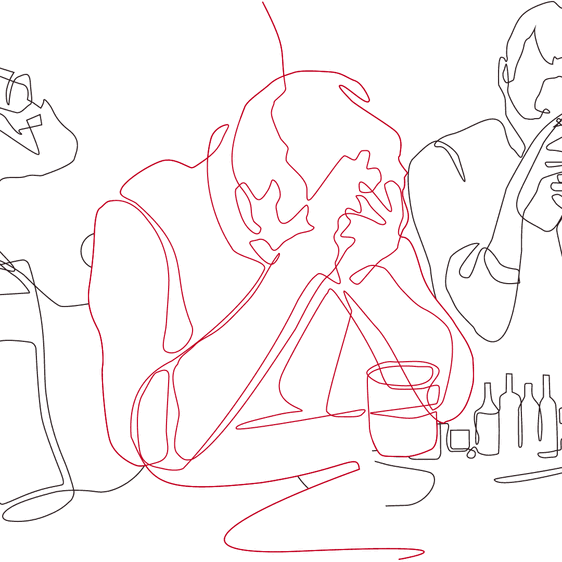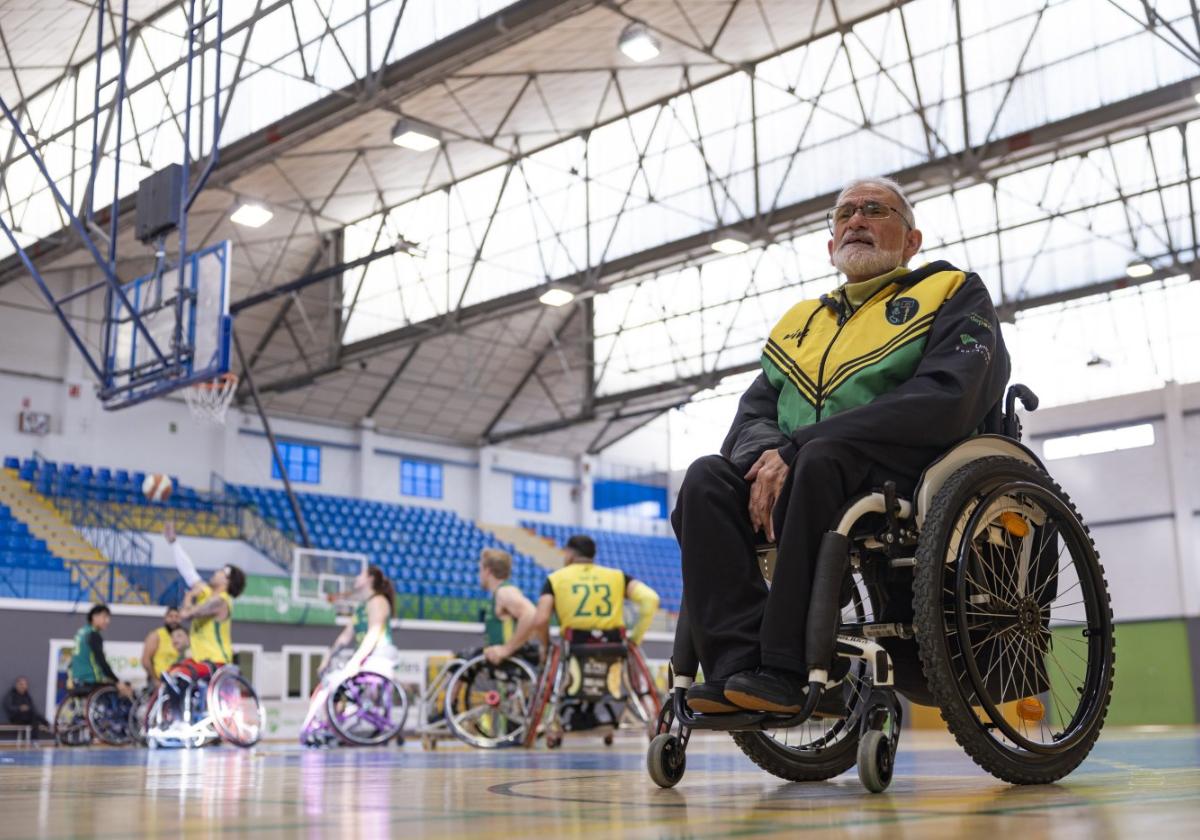Paco Aguilar, champion of basketball and inclusion
Co-founder of Amivel, a club in the top division for more than a decade, Paco is an institution in Vélez-Málaga and in wheelchair sports
Cristina Vallejo
Malaga
Friday, 10 January 2025, 12:20
Francisco Aguilar Campos is sports director of Amivel, a leading wheelchair basketball team he co-founded in 1979. Amivel have been in the División de Honor (first division) for more than ten years and are the only Andalusian team in the category. They have also earned the right to play in Europe, although the logistics are complicated and travel costs high. The club, full of stars such as Finnish Paralympic medallist Leo Pekka, train in the sports centre named after Aguilar Campos in his home town of Vélez-Málaga. Pure nerve, pure charisma, a force of nature, Paco, as he is known, is now in charge of signings, planning, organising trips and dealing with the federation; a few years ago, a car accident caused a doctor to retire him from the training sessions he was in charge of and also from teaching PE.
That accident further complicated the health of this sports enthusiast who had been living with illness all his life. When he was thirteen-month-old baby, it was first thought that he had caught a cold, but he had polio. His family, originally from Comares, had moved to Madrid in search of a better future. When the little boy fell ill, he was treated at Madrid's San Juan de Dios children's hospital. He was born in 1959, so this would have been in 1960.
"At the beginning there was a lot of ignorance. Polio was called 'the children's disease', because it affected infants," he says. He needed several operations up to the age of 18.
People used to be reluctant to be seen with their disability and go out in their wheelchair on a court in public
His childhood and adolescence were marked by his time in hospital and by travelling between Madrid and Malaga, where the family eventually returned because the climate was better for him. But although the illness weighed heavily on the youngster, he says that he was always very lively, very active: "If I couldn't walk, I would crawl on all fours."

Zoom

Rehabilitation and exercise meant that for most of his life he was able to walk with the help of two sticks. It was a car accident in 2004 that left him in the wheelchair in which he now moves around the basketball court.
Paco Aguilar worked hard at school, went to university and became a teacher. With a great deal of willpower. "There were no adapted facilities or toilets, although I managed. But there are moments in life that make a big impression on you. For example, when I couldn't go out to the playground, we all stayed in class during break. The truth is that I have come across people in my life who dominated and defended equality," he says with emotion.
But, given his drive and determination, he also forced the system to improvise, because there were as yet few laws protecting the inclusion that he and his family were demanding. When his mother went to enrol him in a school, the head teacher told her that his degree of disability was so high that he had to go to a special school; she was not convinced and appealed to higher educational bodies who concluded that the school the family had chosen was the one he should go to.
Functional diversity
He is also proud of another of his life's milestones, when he sat the exams to become a teacher specialising in therapeutic pedagogy. He says that the practical case study he was asked to solve consisted of how to explain geometric figures to a class in which there were children with Down's syndrome and he said that he would take all the pupils down to the basketball court and use the lines on the court to show them.
"They were very impressed, no one had ever come up with anything like that before and they asked me how I had thought of it," he boasts. "I was just trying to put real integration into practice, because I had experienced it," he says.
He argues that the next constitutional change will have to be one that moves from the term "people with disabilities" to "people with functional diversity". No one better than him illustrates how everyone can enrich the world with their particular experience and the conditions of their existence.
And there was a third great anecdote in his life: when he took the exams to become a football coach and was initially told that a person with a "physical defect" could not do the job, he complained and, although he was not awarded the qualification, he was authorised to lead training sessions.
Paco Aguilar has always loved sport, especially football. He owes this to living as a child near the old Vicente Calderón stadium (Atlético de Madrid) and to the fact that the San Juan de Dios children's hospital, where he was treated for polio, was near the Santiago Bernabéu and Real Madrid players like Velázquez and Del Bosque visited the children occasionally.
When he had just turned twenty, despite his disability, he was already an instructor for the Vélez-Málaga sports department; in charge of giving extracurricular sports classes to children in half a dozen local schools. And then, when he passed the exams, he became a PE teacher.
What did the children say to him when they saw him? At first, they looked at him with curiosity, but then, "children don't see disability", he says. In any case, everyone in the town already knew him, he was very popular, so it was nothing new to see him in the classrooms and school playgrounds.
If football was his first passion, how did he switch to basketball? In football, I felt I had no projection. The 'normals' seemed to have preference," he says, noting that the integration of diversity in football seems more complicated.
Amivel is born
Apart from his day job, he taught basketball in five schools in Vélez, studied, achieved the title of national coach and the time came when Amivel was set up.
"At the beginning we had to deal with the rejection of disabled people themselves; social workers explained the project in towns and villages, but the wheelchair has negative connotations," he explains.
"People used to be reluctant to be seen with their disability and go out in their wheelchair on a court in public," but that, he continues, is the real achievement: showing yourself to others as you are. He also tells how nowadays, little by little, it is becoming more usual to see sportsmen and women share their experiences with their disabilities, their prostheses, their treatments.
The project took shape and Amivel are now in the top division. In the more than four decades that Paco Aguilar has been involved in sport, what he values most is the increased visibility of the activities carried out by people with disabilities. He also notes that it has been more difficult for women to go out because of overprotection of their families, he considers that this is also gradually improving. Teams can be mixed, as is the case with Amivel, whose ranks include Mexican player Vicky Pérez.
But Paco Aguilar's initiative is not limited to strictly sporting matters. "People with disabilities kept saying to me: 'We are fed up with doing courses, nobody hires us.' So together with Francisco Delgado Bonilla, who was a work inspector and who was also mayor of Vélez, we set up the Centro Especial de Empleo, which is a company that only employs people with disabilities, and is involved in activities such as carpentry, ceramics, transport etc..."
Sportsman, teacher, activist, entrepreneur... enthusiastic, talkative and eloquent, he jumps from the theory of inclusion to its practice. An example, not of overcoming difficulties, but of accepting them. Human beings are all different. But there are only a few who can be described as unique and indispensable to the community.


